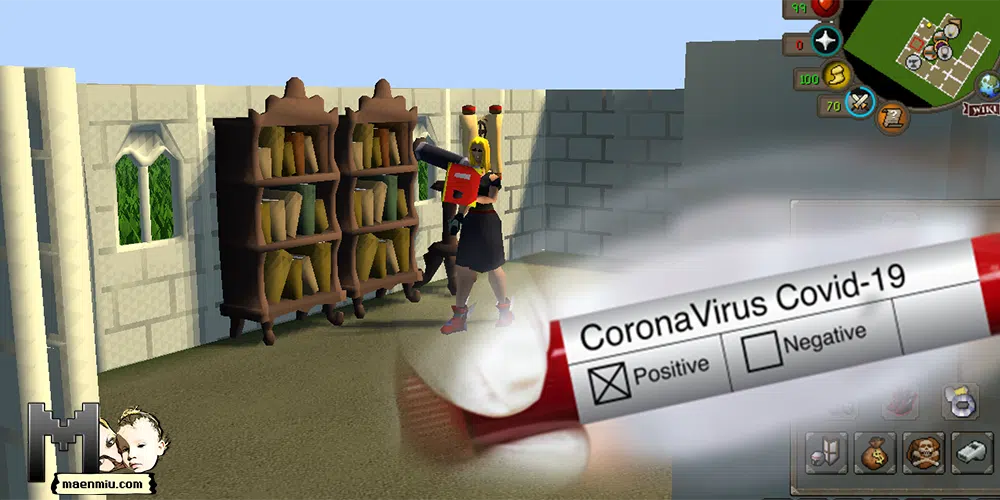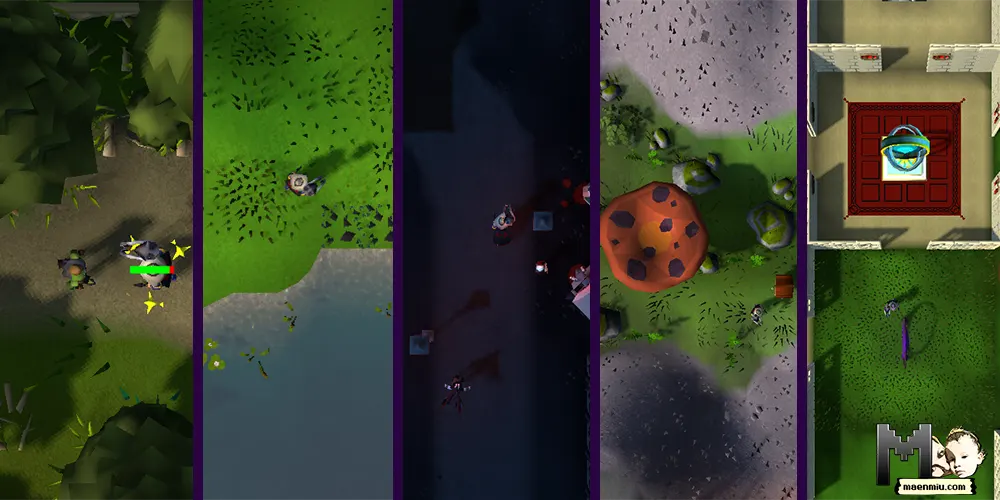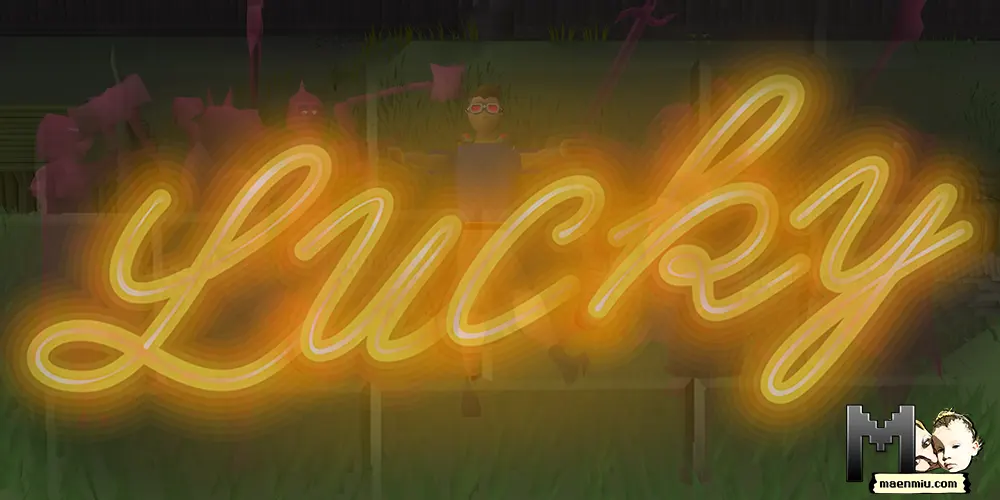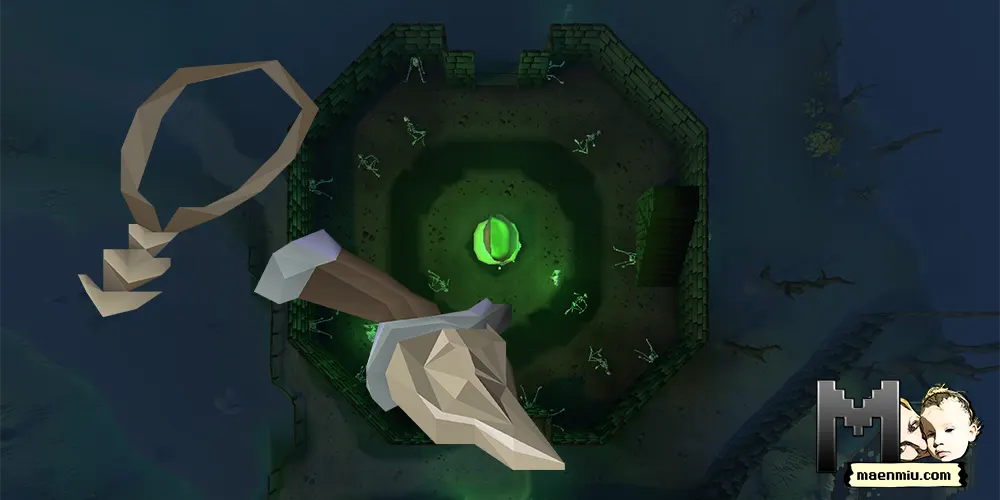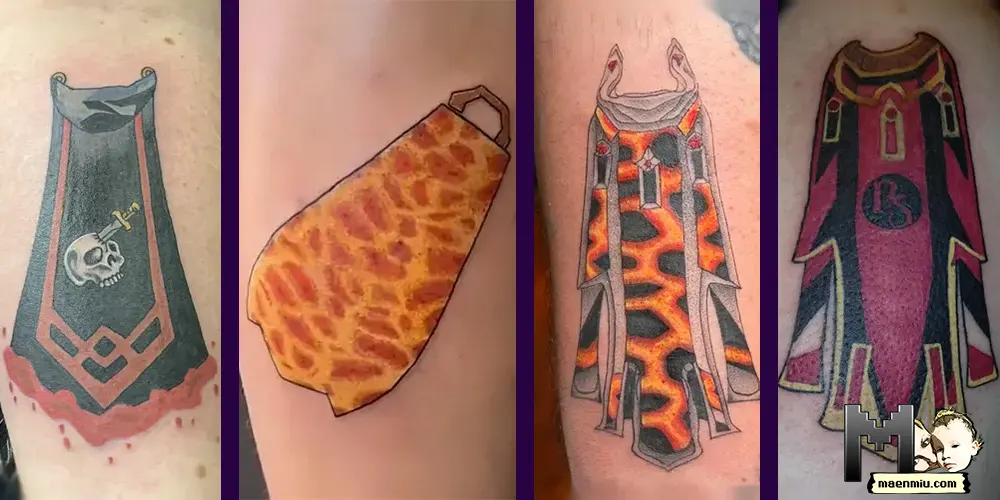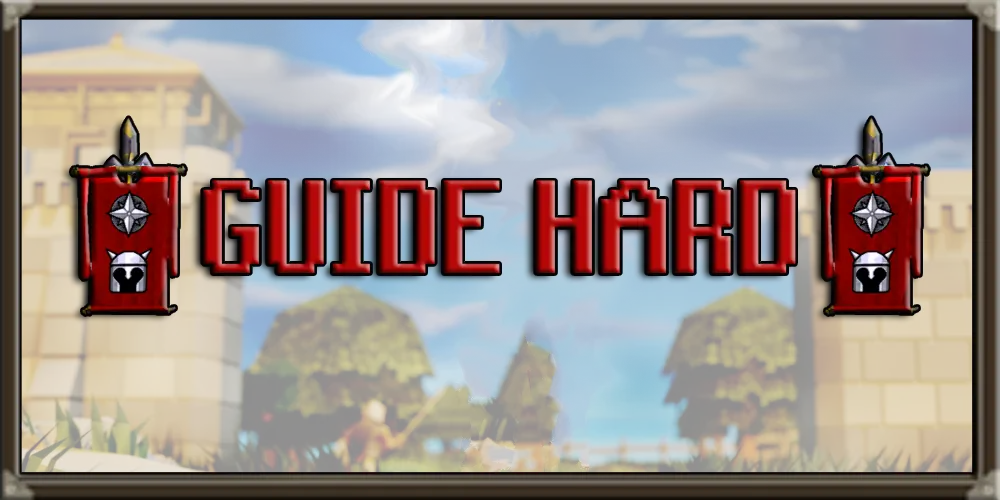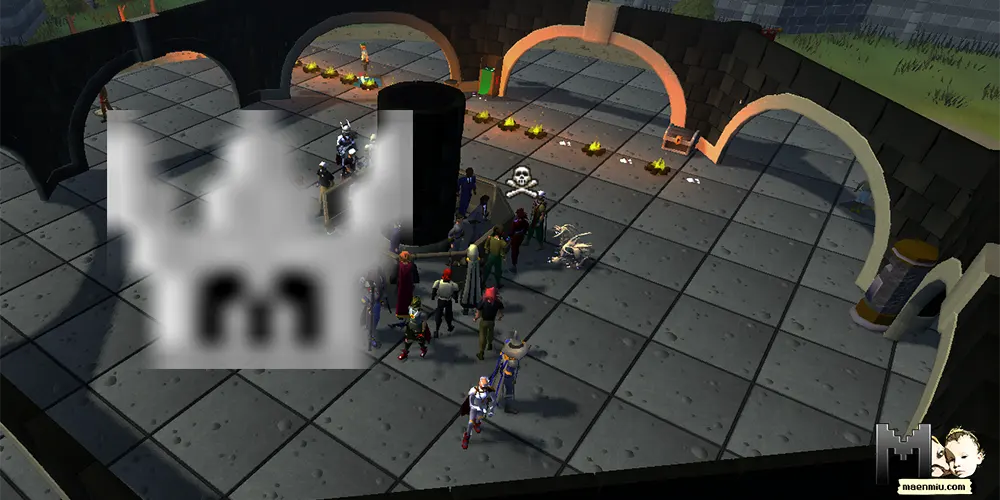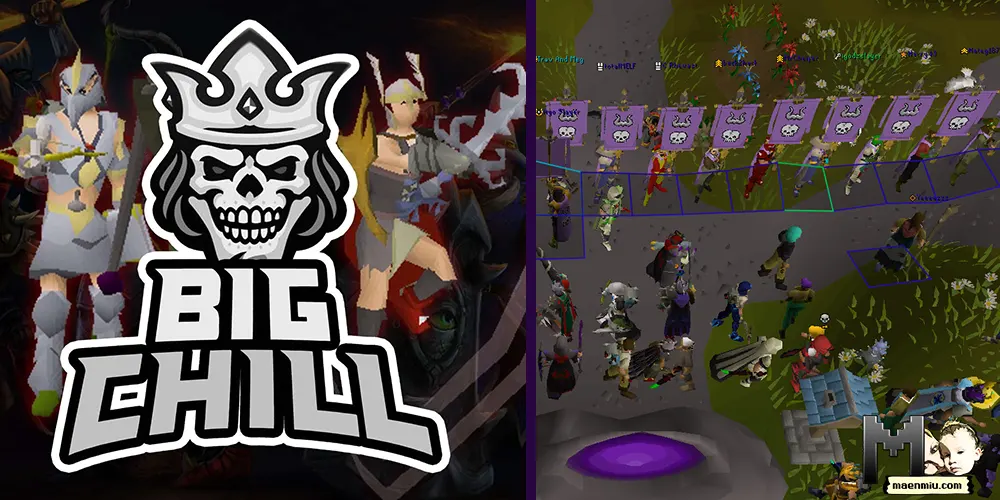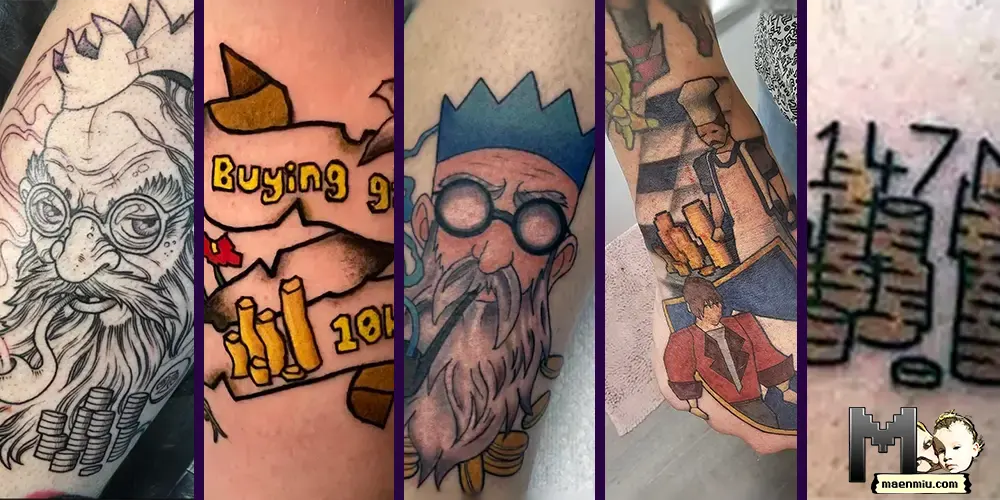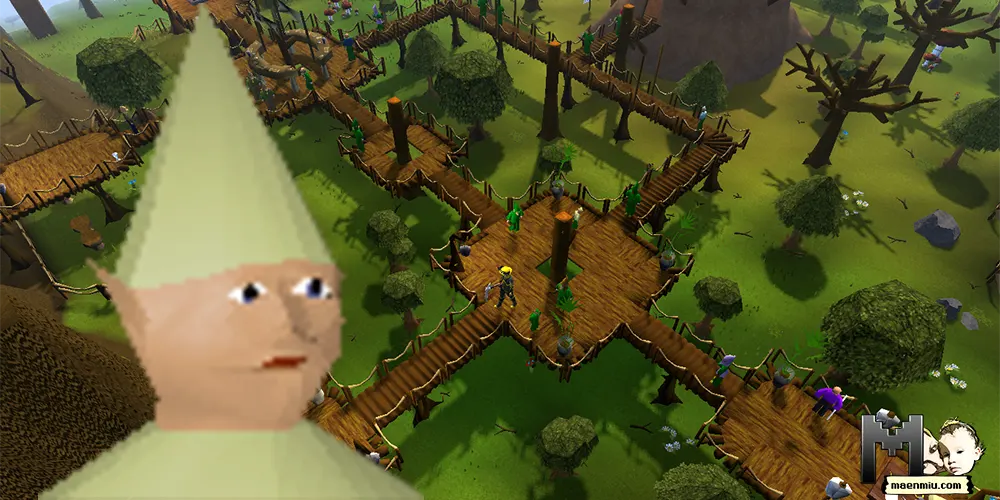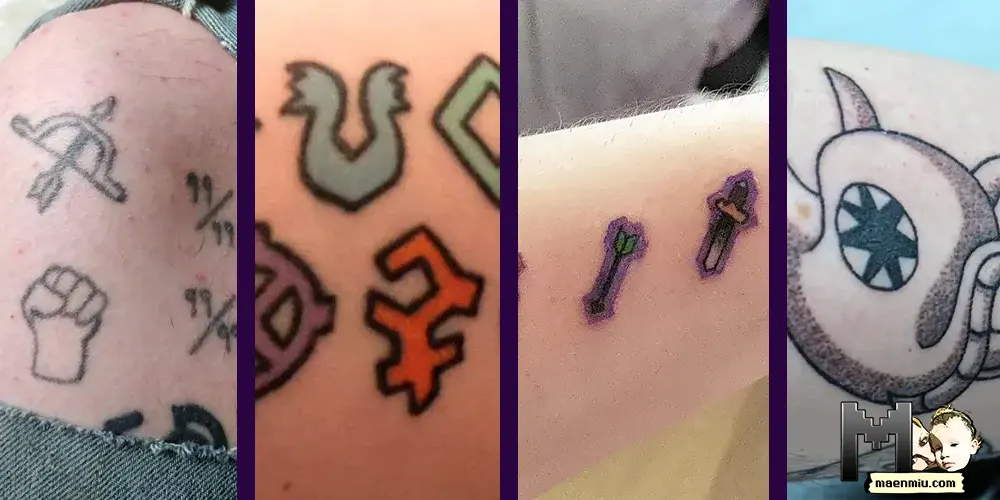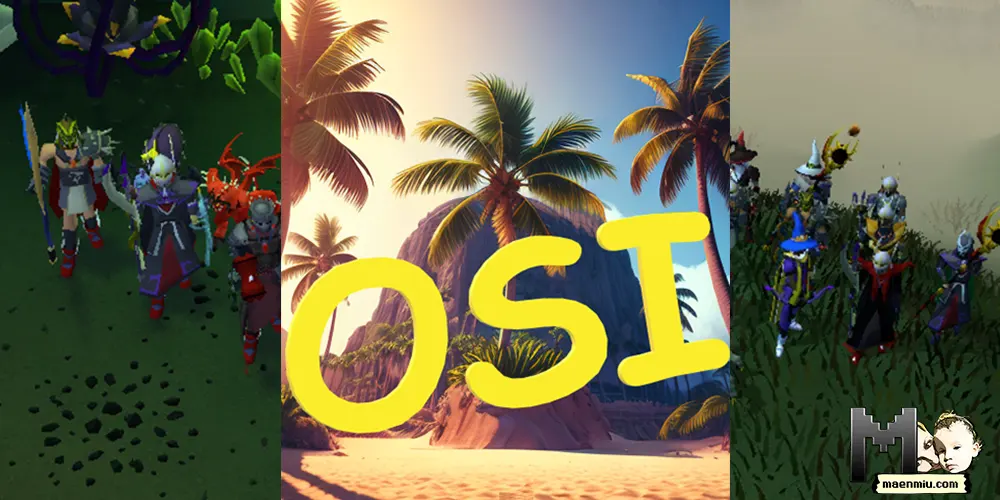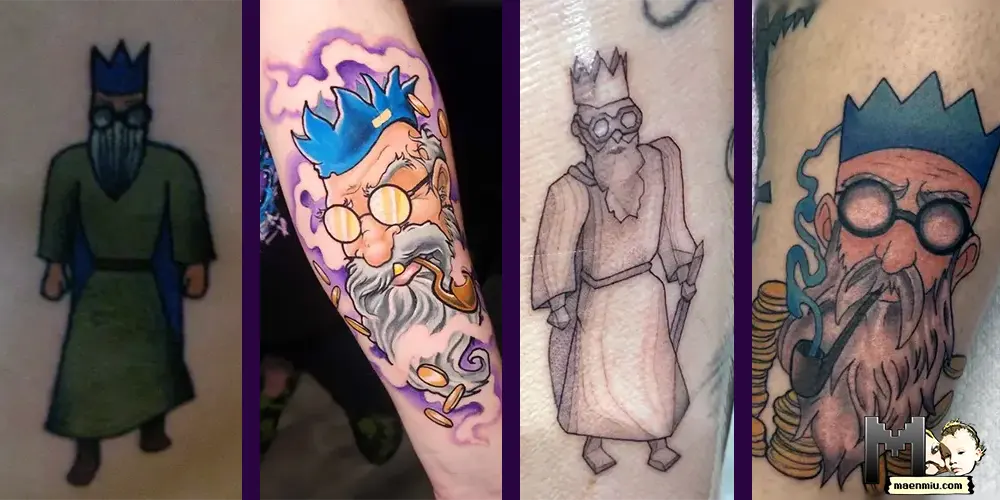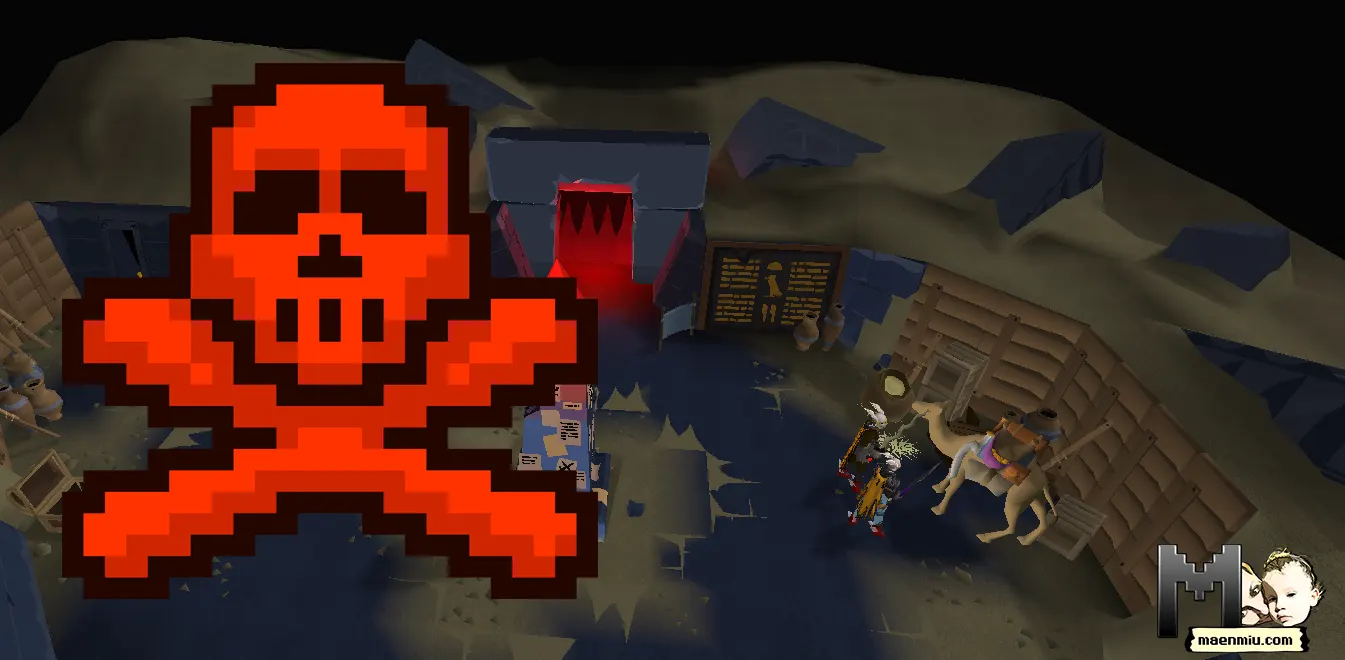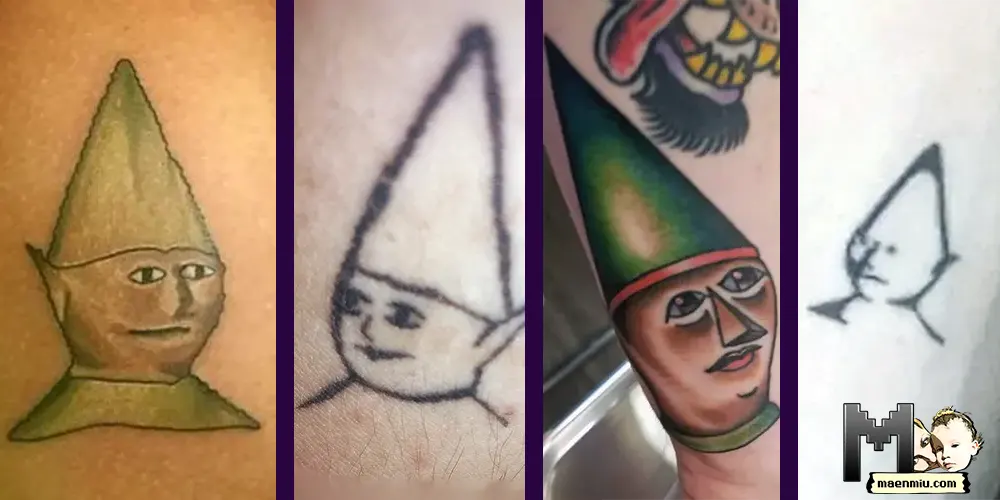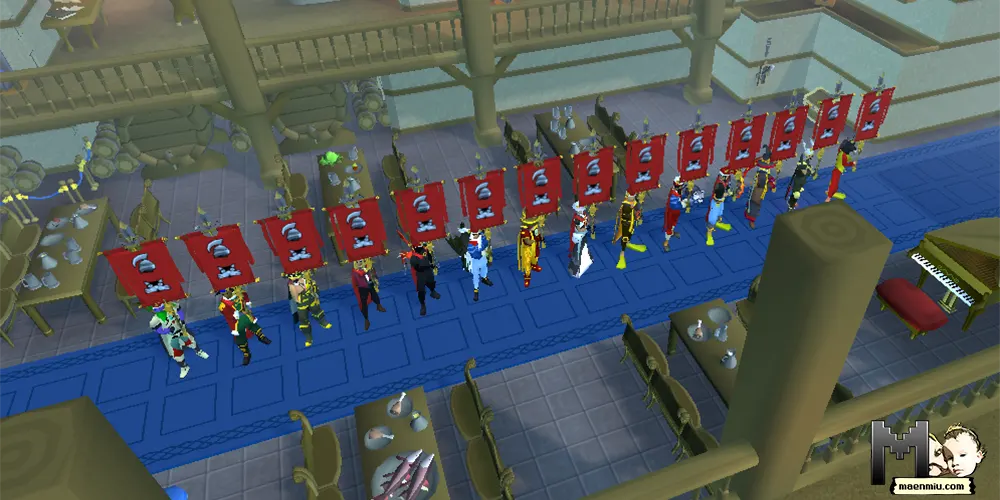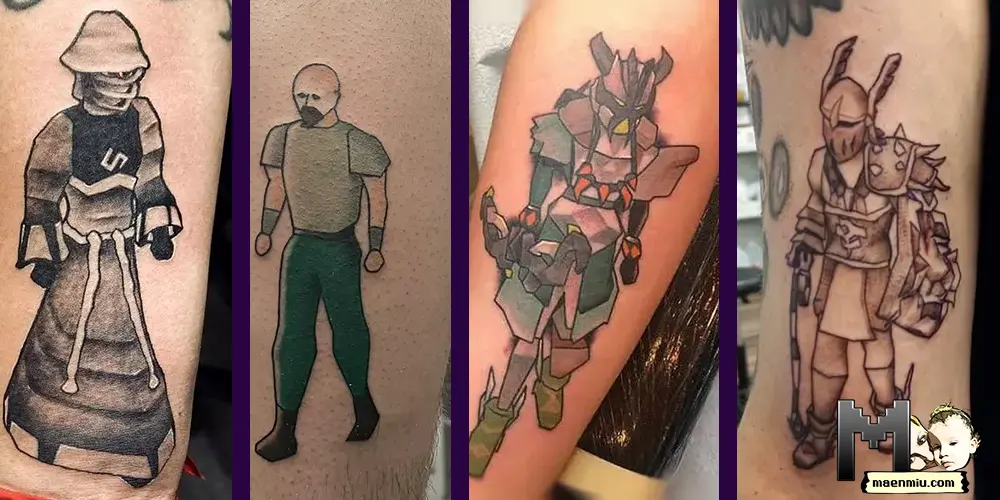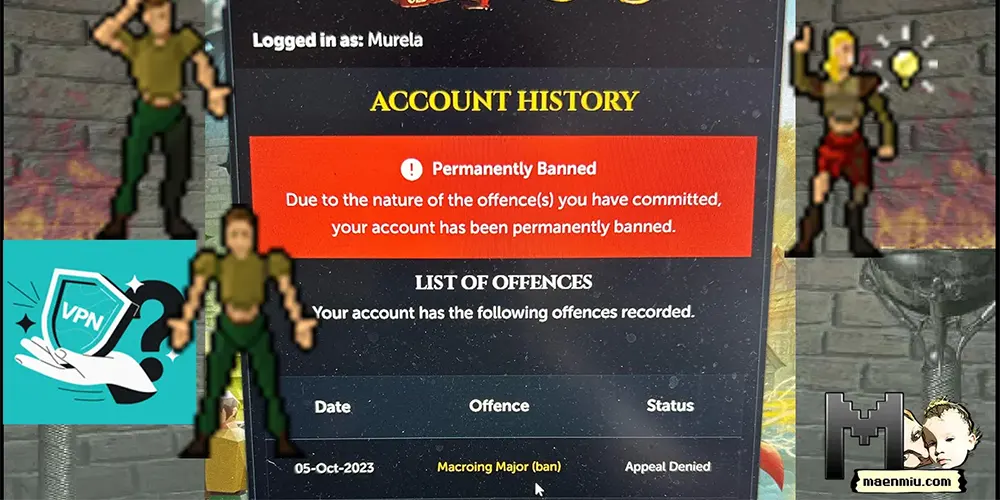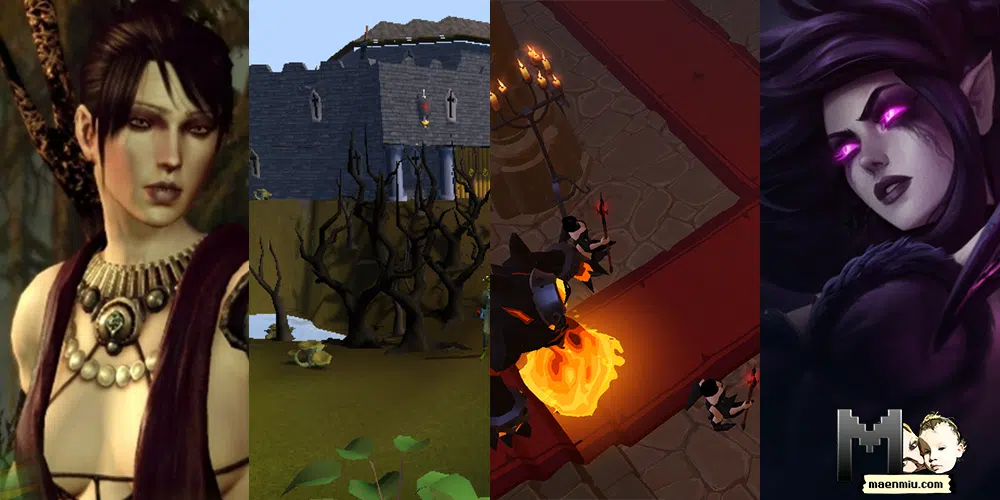
Since the dawn of civilization, cultures have developed and shared narratives imbued with vibrant characters that reflect the societies’ beliefs, values, and experiences. One such character that has left an indelible impact on cultural consciousness is Morgana. Morgana’s story, based on the Arthurian legends, is a study of complexity and duality, embodying themes of betrayal, redemption, and power. Morgana’s interpretation goes far beyond her as a cultural icon, since she is incarnated in popular games such as League of Legends (LoL), the influential Morgana Faction in Albion Online, in Old School RuneScape, or Dragon Age, and many other games.
I happen to partially identify with her and for a long time had her Dragon Age image as my profile pic and some of her League of Legends famous quotations as my discord description. Do not run from your shadow and let’s further explore what Morgana is all about.
You might like
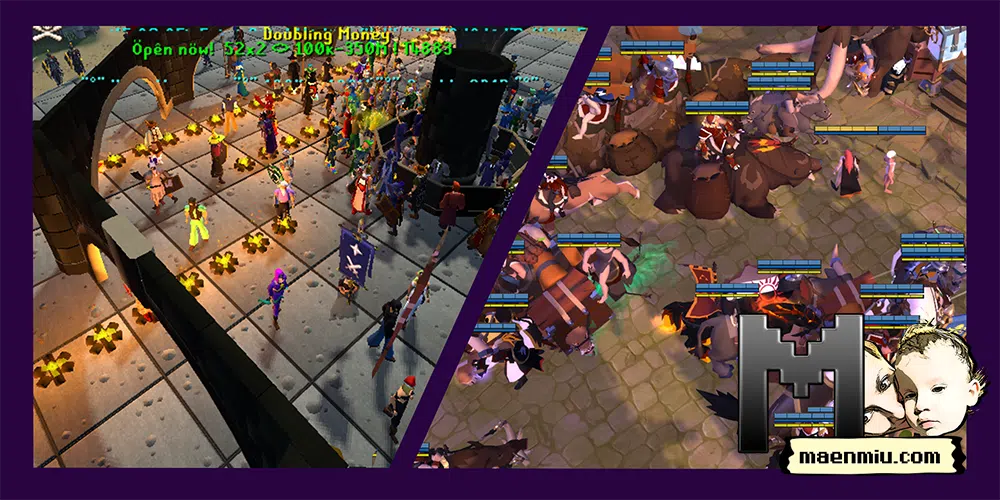
Morgana as a Cultural Icon
Morgana, or Morgan le Fay as she’s often known, hails from the rich tapestry of Arthurian legends. As a powerful enchantress, she often plays the antagonist, a role steeped in intrigue and mystique. Morgana represents a dark mirror to the chivalric values of Arthur’s court, a symbol of the unpredictable power and fearsome autonomy that stood in contrast to the societal norms of the time.
However, she is far from a one-dimensional villainess. Morgana’s narrative often highlights the marginalization of women and the consequences of their disenfranchisement. This duality makes her a fascinating cultural icon, embodying the struggle against patriarchal norms. In many ways, Morgana is a subversion of the traditional female archetype, as she wields magic – a symbol of mystery, autonomy, and power – that makes her a beacon of resistance.
Morgana in League of Legends
In Riot Games’ League of Legends, Morgana embodies a different sort of duality. Here, she is portrayed as a fallen angel, her narrative woven with themes of choice, self-determination, and rebellion. Torn between her celestial heritage and the chaos of humanity, Morgana chooses to side with the latter, advocating for free will and acceptance of human imperfections.
Morgana’s gameplay also reflects her character’s thematic core. As a versatile support-mage, Morgana has the power to protect her allies or ensnare her enemies, embodying her role as a guardian of humanity who isn’t afraid to confront those who threaten peace. This balance between protective spell (the strong black shield) and offensive abilities showcases the complexity inherent in her character.
The popularity of Morgana in League of Legends has catapulted her into mainstream gaming culture. The multi-dimensional nature of her character challenges the stereotypical portrayal of female characters in gaming, making her a modern icon that mirrors the nuance of her cultural counterpart.
The Morgana Faction in Albion Online
Albion Online, an MMORPG known for its player-driven economy and open-world PvP, introduces Morgana as a significant faction rather than an individual character. The Morgana Faction, once the most powerful magic users in Albion, fell from grace after a catastrophic war. This faction, like the character it’s named after, is a symbol of resilience and adaptation, grappling with their past mistakes while harnessing their magic to reclaim their lost glory.
The faction’s narrative in Albion Online reflects themes found in Morgana’s story – a fall from grace, endurance in the face of adversity, and a relentless pursuit of power. Players often encounter the Morgana faction as hostile NPCs, their power and resilience making them formidable adversaries. Through their interactions with the Morgana faction, players grapple with themes of redemption, ambition, and the complex nature of power, all synonymous with Morgana’s character. In the game’s lore, the Morgana faction’s fall and their struggle for redemption echoes the story of their namesake.
Morrigan in Dragon Age: The Shadow of Morgana?
In Bioware’s critically acclaimed Dragon Age series, another character arises that bears striking similarities to Morgana – the enigmatic witch of the wilds, Morrigan. Like Morgana, Morrigan is a powerful magic wielder, draped in mystery and often viewed with suspicion due to her outsider status.
Morrigan’s character design, marked by her assertiveness, independence, and often cynical worldview, appears reminiscent of Morgana’s portrayal as a figure at odds with societal norms. Both women wield immense power, making them formidable figures in their respective universes. Yet, they also exhibit vulnerability and complexity, highlighting the nuanced human characteristics that make them more than just antagonists or the dreaded ‘witch’ archetype.
The story of Morrigan is laced with themes of motherhood and transformation. These aspects could be seen as drawing parallels with the Arthurian Morgana, who often uses her powers for transformation and manipulation, and whose relationships, particularly familial, play significant roles in her narrative. This dimension of Morrigan’s character paints her as a complex, multifaceted figure much like Morgana, transcending the one-dimensional stereotypes often associated with female characters in such narratives.
While it’s not explicitly stated by Bioware that Morrigan is directly inspired by Morgana, the parallels between the two characters are hard to ignore. They are both powerful, complex women who challenge societal norms and possess the agency to make their own decisions. These elements might suggest some level of influence or at least a shared lineage with the archetype that Morgana represents. However, it is also crucial to note that Morrigan stands as a unique character in her own right, with a distinct personality, motivations, and narrative arc that set her apart from the Morgana of folklore and gaming adaptations.
Ultimately, the character of Morrigan is a testament to the enduring legacy of Morgana, demonstrating the far-reaching influence of this cultural icon in shaping the portrayal of powerful female characters in modern fantasy narratives.
Morgana in OSRS
In the popular MMORPG Old School RuneScape, Morgana, or as she’s referred to in the game, Morgan Le Faye, makes an appearance as a prominent character. Like her counterparts in other forms of media, she is a formidable sorceress with a rich backstory.
Morgan Le Faye resides in a castle on the mysterious Keep Le Faye island. Players encounter her during the “Merlin’s Crystal” quest, where she has imprisoned Merlin in a magical crystal. The quest involves players going on a journey to free Merlin, requiring them to confront Morgan Le Faye’s forces, including her powerful bodyguard, Sir Mordred.
However, her depiction in Old School RuneScape leans towards the traditional portrayal of Morgana as an antagonist. This contrasts with more nuanced portrayals in other games, such as League of Legends and Dragon Age, or the figure she represents in modern interpretations of Arthurian legends.
Yet, even in her antagonist role, she retains the essence of her character. She is a powerful, independent woman who can hold her own against the forces of Camelot. Her control over magic, and her ability to challenge Merlin, the greatest wizard of Arthur’s court, demonstrate her prowess and cunning.
Overall, Morgan Le Faye’s portrayal in Old School RuneScape continues the trend of presenting her as a force to be reckoned with. Although more villainous in nature compared to some modern iterations, her character keeps the core traits that make Morgana a compelling and enduring figure in cultural narratives.
In the “Holy Grail” quest, you’ll learn more about the castle she occupies, known as Keep Le Faye. The castle is home to the Knights of the Round Table who have turned to the dark side, indicating Morgan Le Faye’s influence and power.
Throughout these quests, Morgan Le Faye is shown to be a formidable adversary. Her magical power is considerable, demonstrated by her ability to trap Merlin, one of the most powerful wizards in the game, in a crystal. Moreover, she commands a force of renegade knights, further emphasizing her strength and influence.
However, her character remains a mystery, with much of her motives and backstory left unexplored in the game. Her antagonistic role is clear, but the reasons behind her actions and her relationship with other characters in the Arthurian lore, such as King Arthur and Merlin, are not extensively delved into in Old School RuneScape.
As the game continues to evolve and new content is added, it’s possible that more aspects of Morgan Le Faye’s character may be unveiled in the future. Her character’s rich lore leaves plenty of room for further development and exploration.
I created this article with the partial assistance of an AI tool. Learn about my view on AI and why I’m telling you about it.

